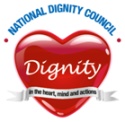Concerned about an adult
Members of the public
As a member of the public, if you are worried about yourself or someone else, please do not ignore it. Listen carefully and make a note. Then phone us on:
- 0300 123 5010
(8:30am to 5pm Monday to Thursday and 8:30 am to 4:30pm Friday)
- 0300 123 5022
(at all other times including bank holidays)
If you are in doubt about whether it is abuse or not - please call.
If you are at immediate risk of harm contact the emergency services by ringing 999, or if it is not an emergency, call 101.
If you have a hearing or speech impairment you can use the national telephone relay service, just dial 18001 before the number or 18000 in an emergency.
If you feel unable to give information about yourself you can report abuse anonymously. All calls will be treated with respect and in confidence.
Professionals
If you are a professional, you can use the form available on our safeguarding adults at risk page to explain any concerns you have.
Help if you are living in fear of your partner or family member
Help is available if you are experiencing domestic abuse. The majority of adults who experience domestic abuse are not "vulnerable" in terms of requiring care and support, but where a person is being abused by a family member, they may need specialist support.
Safeguarding is everyone's business
Adults live in community settings and it is important that safeguarding is everyone's business. Cheshire East Council delivers a wide range of services that contribute directly to making our communities safer and aims to ensure that community safety is taken into account in all aspects of service delivery. Wherever you live or work in Cheshire, if you have concerns about an adult at risk please report the incident to Adult Social Care.
Help to make your own decisions
There are various ways in which you can keep yourself and your loved ones safe.
- Mental capacity means being able to make your own decisions. If you lack capacity to make your own decisions, a professional or family member/friend/carer may need to make decisions on your behalf
- You can nominate someone to act on your behalf should you lose capacity in the future. Anything done under a lasting power of attorney must be done in your best interest and must follow the principle of the Mental Capacity Act. A lasting power of attorney can be made for financial and/or health and welfare decisions, and is a legal document
- You can make an advanced decision to refuse medical treatment if you are aged 18 years or above and have mental capacity. You can decide that you do not want a particular type of medical treatment if it was ever needed in the future and you lacked capacity at that time
- Cheshire East actively works with local care providers to ensure that they are providing the right care to the right people at the right time. It is important that when choosing a care home or a domiciliary care agency that people are confident about the care provided and can access relevant information about the providers to ease decision making. Quality Assurance and Contract Managers from both Health and Adult Social Care work with a range of agencies including CQC and Healthwatch to monitor case standards and to take appropriate action when standards are compromised. There is guidance for providers on how to report a safeguarding concern process for providers to follow if they suspect abuse is happening in a care setting.
 Dignity in care
Dignity in care
Our adult social care and health services work in partnership with a range of organisations who work with older people and those who care for them to provide a high quality service that respects people's dignity. Become a dignity champion today, sign up on the dignity in care website.
Safeguarding Adults Policy
In line with many other local authorities in the region, we have adopted the North West Safeguarding Policy.
Page last reviewed: 21 July 2025
Thank you for your feedback.